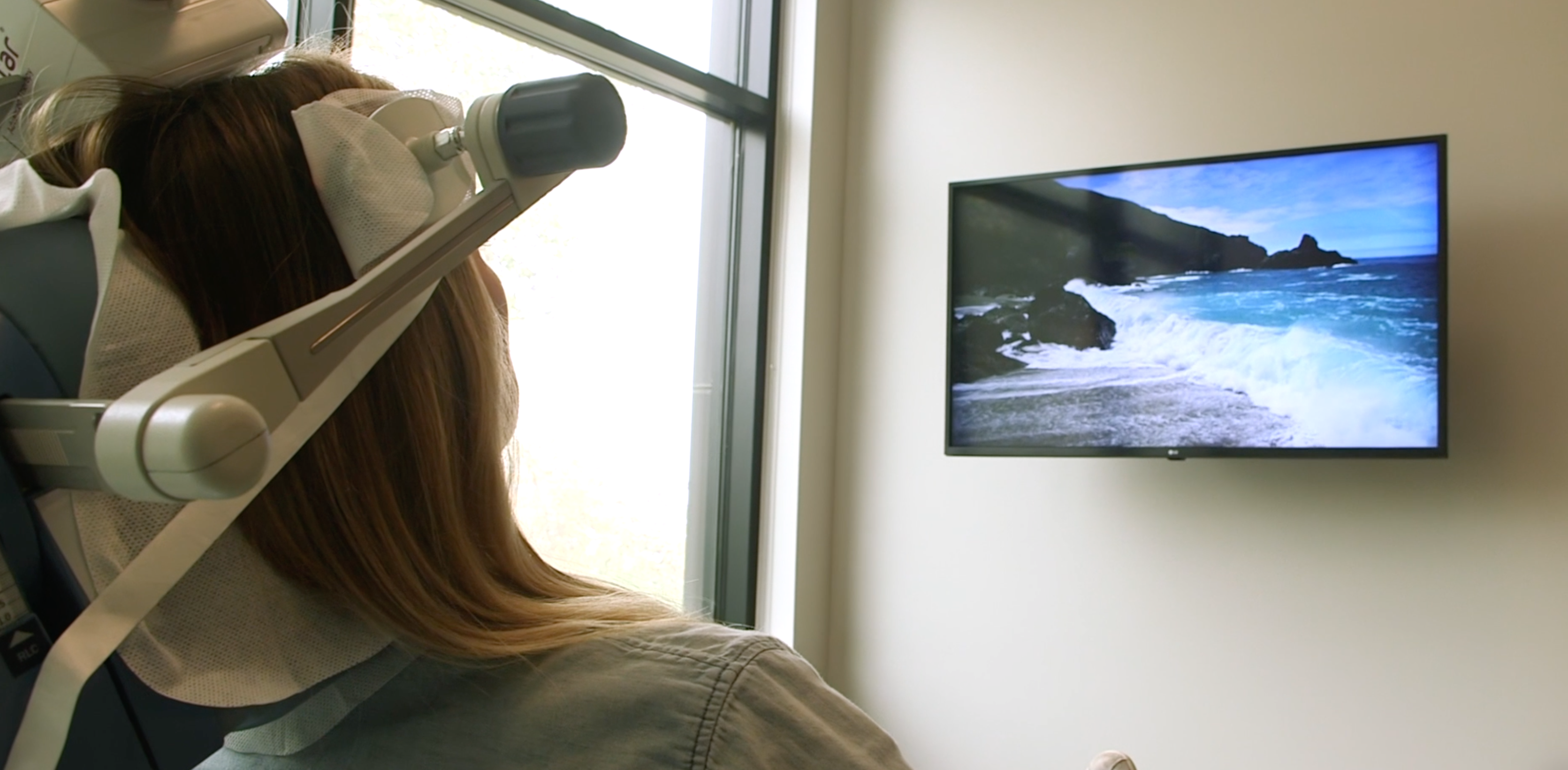A Modern Treatment Method
A more modern option available for treatment-resistant depression is transcranial magnetic stimulation. TMS is proven to be successful without the concurrent use of antidepressants. It’s been found to be very helpful for patients with resistant depression or who are adverse to taking depression medication because of side effects.
Relief for Treatment-Resistant OCD
Obsessive Compulsive Disorder is commonly treated with medication, therapy, or a combination of both. Depending on the definition used, 30–60% of patients on medication are treatment-resistant, meaning they do not respond to medication or therapy. For these patients, transcranial magnetic stimulation becomes one of the few viable options available.
TMS is a non-invasive, FDA-cleared treatment for OCD patients whose symptoms have not improved with at least two antidepressant prescription treatments or have not achieved the desired results. TMS uses a highly focused, pulsed magnetic field to stimulate the regions of the brain involved in mood regulation.
Please note that among insurance companies that provide coverage for TMS treatment, only depression is currently recognized as a qualifying condition.
Treating Both Components of OCD
Obsessive compulsive disorder is a combination of uncontrollable thoughts and behaviors. The treatment course at Active Path Mental Health addresses both of these components by combining elements of exposure response prevention (ERP) with TMS therapy.
Our providers work with each patient to create a “provocation” list which helps activate the specific circuits of the brain affected by OCD. The TMS treatment works to interrupt these circuits which, over the course of treatment, can lead to a reduction in symptoms. The course of treatment is six weeks long with a total of 29 treatments. Each session takes 30-40 minutes.
Peer-reviewed studies have shown significant improvement in patients’ Y-BOCS scores, the standard measurement for OCD symptoms. In one study, over 45% of patients in the active treatment group had a significant improvement in their Y-BOCS scores compared with almost 18% in the sham treatment group.
TMS therapy is now FDA-cleared for anxious depression
Anxious depression refers to the anxiety symptoms present in patients suffering from Major Depressive Disorder (MDD). It affects approximately 10-16 million adults in the United States each year. This definition is distinct from patients who experience depression that is triggered by a primary diagnosis of an anxiety disorder, such as generalized anxiety disorder (GAD) or panic disorder. Anxious depression is linked to greater severity of depression symptoms, higher risk of suicide, reduced response rates to treatment, and higher risk of cardiovascular disease and diabetes.


